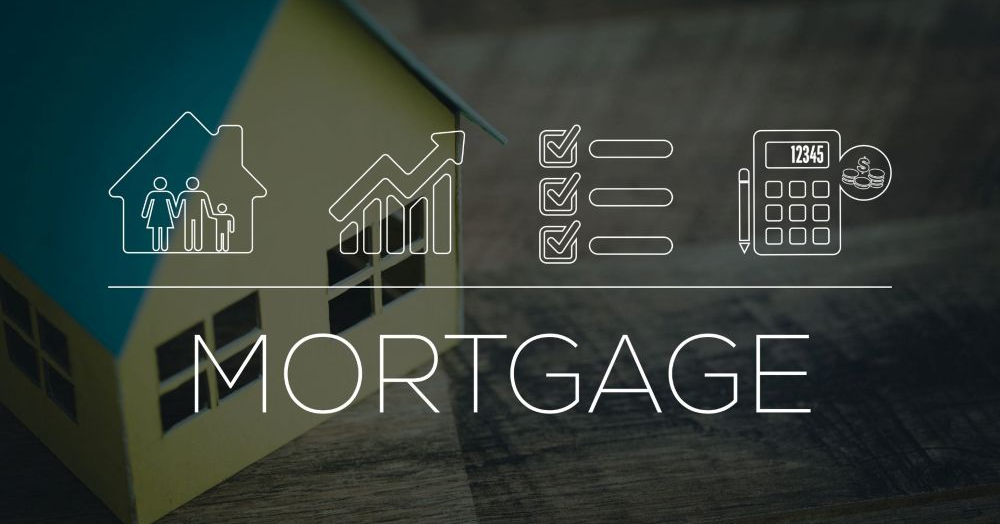Understanding mortgages can feel daunting, but it's a crucial step towards homeownership. This guide demystifies the different types, application processes, associated costs, and the importance of a Mortgage in Principle.
For many in the UK, buying a home is the biggest financial commitment they will ever make. Securing the right mortgage is fundamental to this process. As an estate agent, we often guide clients through the initial stages, but a solid understanding of the mortgage landscape empowers you to make informed decisions.
Understanding Different Mortgage Types
The UK mortgage market offers a variety of products, each designed to suit different financial situations. Here are the most common:
- Repayment Mortgage: This is the most common type. Each monthly payment covers both the interest on the loan and a portion of the capital borrowed. By the end of the mortgage term, you will have paid off the entire loan.
- Interest-Only Mortgage: With this type, your monthly payments only cover the interest on the loan. The capital amount remains outstanding, and you'll need a separate plan (e.g., an investment or endowment policy) to repay the original loan at the end of the term. These are less common for first-time buyers now.
- Fixed-Rate Mortgage: Your interest rate remains the same for a set period, typically 2, 3, 5, or 10 years. This offers stability, as your monthly payments won't change even if the Bank of England base rate fluctuates.
- Tracker Mortgage: The interest rate on a tracker mortgage follows an external benchmark, usually the Bank of England base rate, plus a set percentage. Your payments will go up or down as the base rate changes.
- Standard Variable Rate (SVR) Mortgage: This is the lender's default rate, which you'll usually revert to once a fixed or tracker deal ends. The SVR can change at any time at the lender's discretion, often making it less predictable than other options.
- Discount Mortgage: This offers a discount off the lender's SVR for a set period. While it can offer lower initial payments, the rate can still fluctuate as the SVR changes.
The Mortgage Application Process
The mortgage application process typically involves several key stages:
- Initial Consultation: Speak to a mortgage broker or lender to discuss your financial situation and what you can afford.
- Mortgage in Principle (MIP) / Agreement in Principle (AIP): This is a crucial first step. A MIP/AIP is a conditional offer from a lender stating how much they might be willing to lend you. It involves a soft credit check and provides a strong indication of your borrowing power, making you a more attractive buyer to vendors.
- Full Application: Once you've found a property, you'll submit a full mortgage application. This requires extensive documentation, including proof of income, bank statements, and details of your outgoings.
- Valuation: The lender will arrange a valuation of the property to ensure it provides sufficient security for the loan.
- Offer: If everything is satisfactory, the lender will issue a formal mortgage offer.
- Completion: Funds are transferred, and the property officially becomes yours.
Associated Costs of a Mortgage
Beyond the monthly repayments, there are several other costs to consider:
- Arrangement Fees: Many mortgages come with a fee for setting up the loan, which can sometimes be added to the mortgage itself.
- Valuation Fees: You may need to pay for the lender's valuation of the property.
- Broker Fees: If you use a mortgage broker, they may charge a fee for their services, though some are paid by the lender.
- Legal Fees: Conveyancing solicitors handle the legal aspects of buying a property, and their fees can be substantial.
- Stamp Duty Land Tax (SDLT): This is a government tax on property purchases above a certain threshold.
- Early Repayment Charges (ERCs): If you pay off your mortgage early or remortgage during a fixed or tracker deal period, you may incur an ERC.
The Importance of a Mortgage in Principle (MIP) / Agreement in Principle (AIP)
An MIP or AIP is invaluable for several reasons:
- Budget Clarity: It gives you a clear idea of your maximum borrowing capacity, helping you focus your property search within a realistic budget.
- Credibility with Estate Agents and Vendors: Having an MIP/AIP demonstrates to estate agents and sellers that you are a serious and credible buyer, potentially giving you an edge in competitive markets.
- Faster Process: It streamlines the full application process later on, as some of the initial checks have already been completed.
Understanding Mortgage Offer Expiry
It's crucial to remember that a formal mortgage offer is not open-ended. Most mortgage offers have an expiry date, typically 3 to 6 months from the date of issue. If your property purchase doesn't complete within this timeframe, the offer may expire, requiring you to reapply or seek an extension. This can be particularly important if there are delays in the conveyancing process or if you're involved in a long property chain. Always keep track of your offer's expiry date and communicate any potential delays to your lender and broker.
Navigating the mortgage landscape can be complex, but with the right knowledge and professional guidance, you can secure the best deal for your new home. Always consider seeking independent financial advice to ensure the mortgage product aligns perfectly with your long-term financial goals.
You you would like any home-buying advice, please contact us on the form above or call us on
01474 643101
If you want to talk to our recommended mortgage advisors, please contact them here


